
Equipped with state-of-the-art laboratories that provide students with hands-on experiences to bridge theory and practice
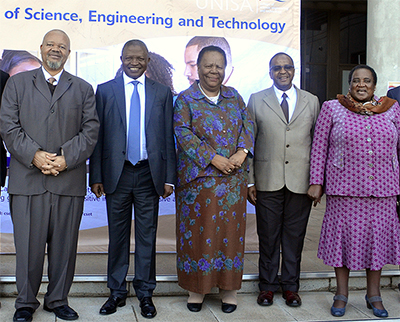
Prof Mandla Makhanya (Principal and VC), David Mabuza (Deputy President of South Africa), Naledi Pandor (Minister of Higher Education and Training), Prof Bhekie Mamba (ED: CSET), and Mildred Oliphant (Minister of Labour)
It is not often that the venue of a meeting takes centre stage. However, this was the case when the modern buildings and high-end facilities at Unisa’s Science Campus dazzled delegates attending the Human Resources Development Committee (HRDC) meeting hosted at the campus on 22 July 2018.
The 20th meeting of the HRDC, a multi-stakeholder forum chaired by the Deputy President of South Africa, David Mabuza, and comprising various social partners at the highest level of decision making, including several ministers, was set to discuss a research study report on the nature and extent of partnerships between post-schooling institutions and industry.
A guided campus tour preceding the meeting set the stage for discussions on partnerships between the HRDC and the Department of Higher Education and Training. In addition to the Deputy President, the selected group that toured the facilities included Naledi Pandor, Minister of Higher Education and Training, Dr Nkosazana Dlamini-Zuma, Minister in the Presidency for Planning, Monitoring and Evaluation, and Mildred Oliphant, Minister of Labour.
The first visiting point was the Nanotechnology and Water and Sustainability (NanoWS) Research Unit. Working closely with national and international collaborators and industry stakeholders, the unit focuses on finding solutions to pressing water quality and supply issues and serves as an excellent example of the value of collaboration between the university and industry in the interest of society at large. The NanoWS unit is at the forefront of integrating nanotechnologies with existing water treatment practices equipment. It is particularly well-resourced, with some of the equipment being the only its kind on the continent.
However, research at Unisa is not confined to its modern laboratories. Research solutions are shared and implemented in especially underprovided communities. The delegation keenly watched how an easy-to-install, inexpensive biodigester can convert organic material and everyday refuse such as plastic bags and containers into energy. Biodigesters could be used to great effect in urban and rural areas to provide households with cheap, clean energy.
The next stop was the mobile veterinary clinic. Equipped with basic veterinary theatre equipment, the mobile clinic provides poorly resourced communities in Florida and surrounding areas with basic veterinary services. It also affords Unisa students practical training opportunities.
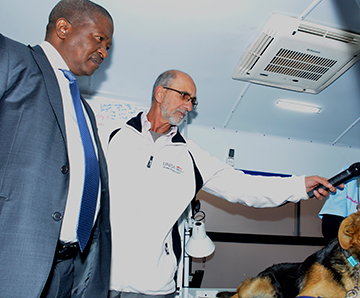 |
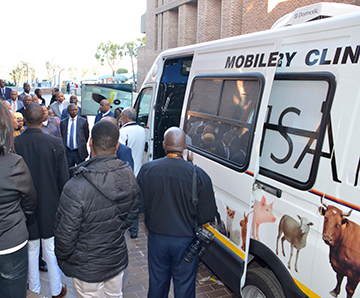 |
Opening the meeting and welcoming HRDC delegates to the Science Campus, Prof Mandla Makhanya, Unisa Principal and Vice-Chancellor, said there were few other facilities such as the Science Campus in the country and it is, in fact, a national asset. He said the university had invested heavily in this campus (far in excess of 1 billion rand) and that the modern facilities and equipment not only enabled the training of both undergraduate and postgraduate students, but also attracted international scholars and researchers to the campus to do research or participate in collaborative research activities.
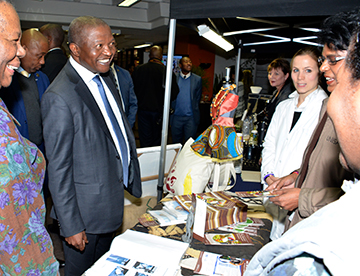 |
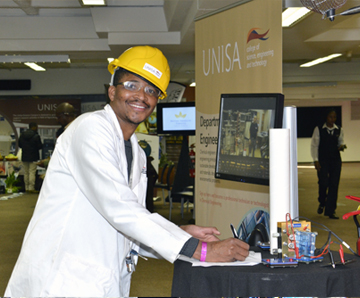 |
Makhanya said that while an investment in a science campus might not be typical for an open distance e-learning (ODeL) institution, to Unisa it made perfect sense. Combined with Unisa’s ODeL business model, the Science Campus afforded students, who would not otherwise have had the opportunity the chance to study in the sciences, access. “It is our belief and indeed our sincere desire that this facility will contribute to growing the numbers of science and technology students, scientists, and researchers in South Africa, on the continent, and abroad, and that it will in fact become a South African and global exemplar of what can be achieved through the kinds of collaborations and sharing set out in the Sustainable Development Goals and our White Paper for Post-School Education and Training (2012),” he concluded, setting the tone for the HRDC meeting’s deliberations on skills development in support of socio-economic growth.
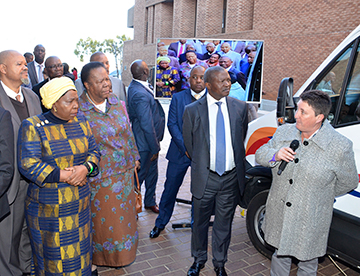 |
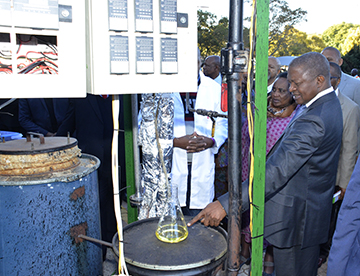 |
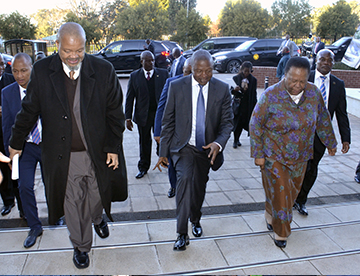 |
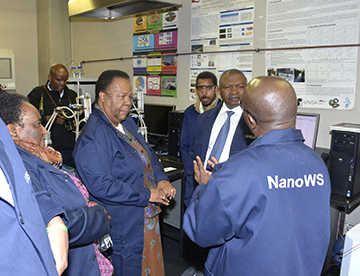 |
*By Nancy-Anne Anderson
Publish date: 2018-06-28 00:00:00.0